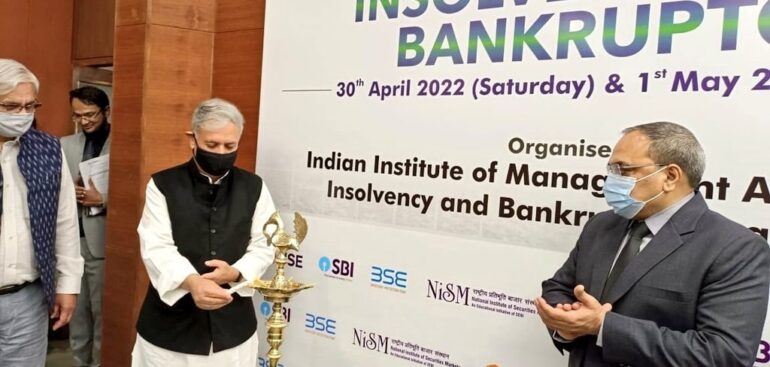Minister of State (MoS) Rao Inderjit Singh attended an International Conference On Insolvency & Bankruptcy at the IIM Ahmedabad as a Chief Guest.
The Insolvency and Bankruptcy Code, 2016 (IBC / Code) is a noble law as it is designed to take care of a person who needs it most, whether it is a company, a LLP, a proprietorship, or partnership firm, or an individual. Over the past five years, the Code, the Insolvency and Bankruptcy Board of India (IBBI), the Adjudicating Authorities (the NCLT) and the Appellate Authority (the NCLAT) for the matters under the Code have had an eventful journey, including that of handling COVID-19 pandemic induced disruptions. Starting from the implementation of the Code, setting up of new organisation and complete infrastructure to handle insolvency activities, the Indian regulatory environment for insolvency and bankruptcy of corporates, to start with, has witnessed a remarkable transition from an archaic resolution and liquidation process to a modern one attempting and facilitating faster resolution of distressed companies and assets. The Supreme Court of India has been proactively clarifying a number of provisions of the Code as they have arisen during the course of its implementation. Having undergone six amendments since its enactment, the Code continues to be a work in progress.
- Call us: +911124643265
- Banner/ Poster Images

